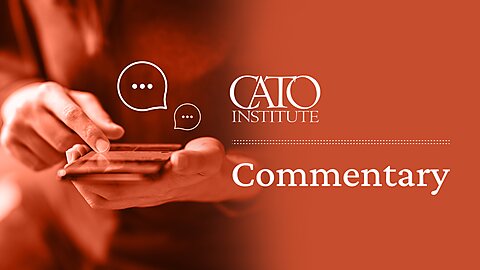Jennifer Huddleston
The debate over youth online safety laws and their impact on speech has often focused on adult users’ rights. However, as I discuss in a recent policy brief, existing precedents suggest that when it comes to expressive activity, young people have rights that can be violated by the government—at least in a school context. Outside of school, these decisions should be left to parents.
Kids Have Been Online, and Are Online For a Variety of Reasons
Most of the debates around young people online today focus on harmful activities; however, today’s teenagers are using the internet in a variety of beneficial ways. In focusing only on the potential harm, we neglect the positive opportunities for expression the internet can provide and fail to ask young people themselves why they are choosing to have online interactions. As I highlight in the paper, young people have used the internet to start businesses, engage in political activism, and find support when they may feel isolated in their communities offline. This has been particularly important for young people in vulnerable or marginalized groups who might not otherwise be able to express themselves.
Concerns about kids’ use of the internet are not new. In the 1990s and early 2000s, internet safety advocates were raising concerns about kids online, but the nature of the debate has shifted somewhat since. The debate about child online safety, however, can often refer to several different concerns parents might have. Some child online safety debates focus on the physical safety of children or protection from sexual exploitation. Others are more concerned about exposure to certain types of content or the amount of time spent online. These concerns have vastly different solutions.
Developing a Legal Basis for Young People’s Expressive Rights
Historically, the leading case around young people’s rights is Tinker v. Des Moines. This case famously established that students and teachers do not abandon their rights at the schoolhouse gates. So, if young people do not abandon their rights to expression when they enter a government‐funded school, why should the government then be able to restrict their ability to express themselves on a private platform, in a private residence, and force them to abandon their rights at the user login page? More recent cases indicate that such proposals may raise constitutional concerns and that it is parents, not the state, that are able to determine what, if any, limitations there are to such rights.
The courts have not yet spoken directly on young people’s rights in this online context, but other cases involving the free expression rights of young people and past internet safety laws indicate that there is likely a high level of scrutiny for such restrictions. For example, in Mahanoy v. B.L, a case involving a young person’s profanity‐laden Snapchat post, the court found that any discipline for such expression in a context outside of the classroom belongs to parents, not the school. In prior challenges to youth online safety laws, including Reno v. ACLU and Ashcroft v. ACLU over two decades ago, the court found that the market response in providing parental controls would indicate that the state had not met its burden for the impact of their proposed laws on the speech of adult users.
Despite all of the past statements on the topic, there remains a missing piece of legal puzzle: what are the contours of young people’s expression rights online? Or, more generally, what are their rights outside of the school context? Current iterations of youth online safety laws are facing legal challenges in Ohio and California, opening up opportunities for courts to provide clarification on the speech rights of minors, including a clear definition of the distinction between government mandate and parental choice.
Conclusion
The internet has been a valuable tool in expanding opportunities for expression, including for young users. As youth online safety laws face judicial challenges, the courts should consider not only their impact on the speech rights of adults, but also on young users’ own speech rights. States may have a legitimate interest in children’s safety, but young people also have expression rights that must be considered, and the state must illustrate it has met appropriate legal burdens before restricting their access to a vital speech outlet.

